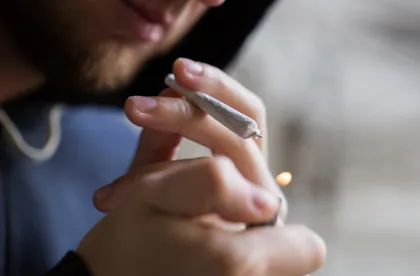When I last wrote my blog post, “New Jersey Marijuana Social Lounges,” in November 2018, the NJ adult-use recreational bill was in its infancy. Now that the state has finally legalized marijuana under the New Jersey Cannabis Regulatory, Enforcement Assistance, and Marketplace Modernization Act (“CREAMMA”), I am duty-bound to update the blog on “cannabis consumption areas” or “CCAs” as defined in CREAMMA.
Many clients have recently asked me, “How do I open a marijuana social lounge?” The short answer is you will need to apply for a cannabis retail license when the applications are published by the newly created New Jersey Cannabis Regulatory Commission (“CRC”).
So, How Do You Open Marijuana Social Lounges?
Fortunately, CREAMMA provides licensed cannabis retailers with the exclusive opportunity to offer one social space for patrons to consume marijuana on the same premises as the retail location – “cannabis consumption areas” (or “CCAs”) – like a bar allows patrons to consume alcohol. Sounds pretty cool, right? But wait, this is New Jersey, so one should expect government red tape before advertising the grand opening.
Under CREAMMA, only licensed cannabis retailers and medical dispensaries can even pursue legally opening a CCA. There will be no “stand-alone” CCAs in New Jersey.
Essentially, a CCA is a designated space operated by a licensed cannabis retailer or medical cannabis dispensary, for which both a state and local government “endorsement” (i.e., formal approval) has been obtained.
A local governmental entity (a/k/a “a municipality”) may authorize the operation of a CCA for the personal use, medical use, or both personal use and medical use of cannabis within its jurisdiction through the adoption of an ordinance.
In order to operate a CCA under a cannabis retail license, the license holder must also apply for an “endorsement” from the CRC and the local governmental entity where the retail establishment would operate. The cannabis retail license holder is prohibited from operating a CCA without both state and local approval.
Under CREAMMA, the CCA endorsement from the state and municipality is valid for one year and may be renewed annually upon the renewal of the cannabis retail license or the medical cannabis dispensary’s permit.
Some More Details, You Ask?
The CCA may be either 1) an indoor structurally enclosed area of the cannabis retailer or medical cannabis dispensary that is separate from the retail sales or medical dispensary area; or 2) an exterior structure on the same premises as the cannabis retailer or medical dispensary, either separate from or connected to the cannabis retailer or medical dispensary, at which cannabis items or medical cannabis either obtained from the retailer or medical dispensary or brought by a person to the CCA, may be consumed.
An indoor CCA shall be a structurally enclosed area within a cannabis retailer that is separated by solid walls or windows from the area in which retail sales of cannabis items occur, shall only be accessed through an interior door after first entering the retailer, and shall comply with all ventilation requirements applicable to cigar lounges, in order to permit indoor smoking vaping, or aerosolizing that is the equivalent of smoking tobacco not in violation of the New Jersey Smoke-Free Air Act.
An outdoor CCA shall be an exterior structure on the same premises as the cannabis retailer or medical cannabis dispensary (or clinical registrant facility), that is either separate from or connected to the retailer, dispensary, or facility, and that is not required to be completely enclosed, but shall have sufficient walls, fences, or other barriers to prevent any view of persons consuming cannabis items within the CCA from any sidewalk or other pedestrian or non-motorists right-of-way.
Any smoking, vaping, or aerosolizing of cannabis items that occur in an outdoor CCA must not result in migration, seepage, or recirculation of smoke or other exhaled material to any indoor public place or workplace. Under CREAMMA, the CRC may require an outdoor CCA to include any ventilation features as the CRC deems necessary and appropriate.
What Activities Are Not Allowed in These “Marijuana Social Lounges?”
Under CREAMMA, patrons of the CCA will not be able to buy a beer, glass of wine, or sip on your favorite spirit. A CCA and the retail establishment’s employees would not be permitted to sell alcohol, including fermented malt beverages or malt, vinous or spirituous liquor, sell tobacco or nicotine products, or allow the consumption of alcohol or tobacco or nicotine products on-premises, or operate as a retail food establishment. Unless they are also medical marijuana patients or caregivers, on-duty employees of the retail establishment are prohibited to consume any medical or retail cannabis within the CCA.
Notably, nothing under CREAMMA restricts the ability of patrons to order food items from outside local establishments for delivery to the CCA. However, CRC regulations to be adopted by August 2021 will further address CCA operations.
Then, What Do We Do With Cannabis Leftovers?
There are provisions under CREAMMA relating to sales limits and taking your unused marijuana products home with you when it is time to leave or at CCA closing time. The patron may leave the establishment with a product (properly secured) that he or she does not consume. And, when a patron leaves the CCA, the establishment must destroy any remaining unconsumed cannabis items that are not taken by the patron.
Through the introduction of CCAs, CREAMMA will allow adults 21 years of age and older to consume and enjoy marijuana in social places outside their home. Although this approach would create more social opportunities with marijuana use, it will also cause concerns (real or not) with road safety. In light of the road safety concerns, one can certainly foresee many municipalities opposing CCAs (as well as cannabis businesses more generally). Thus, CCA endorsements by local governmental entities will be very valuable to cannabis retail establishments, especially as COVID-related health and safety concerns begin to hopefully wane in the latter part of 2021 into 2022.




 />i
/>i

